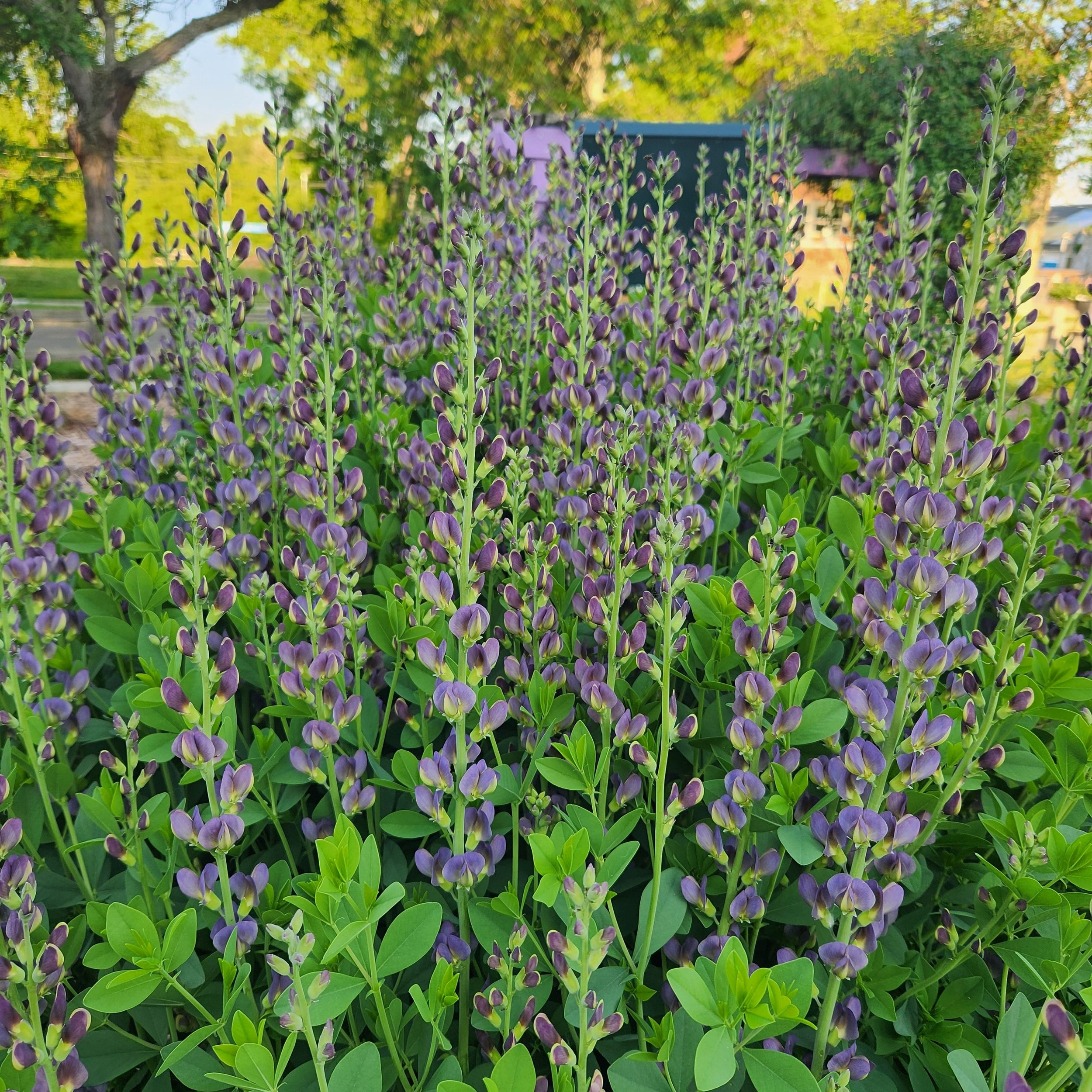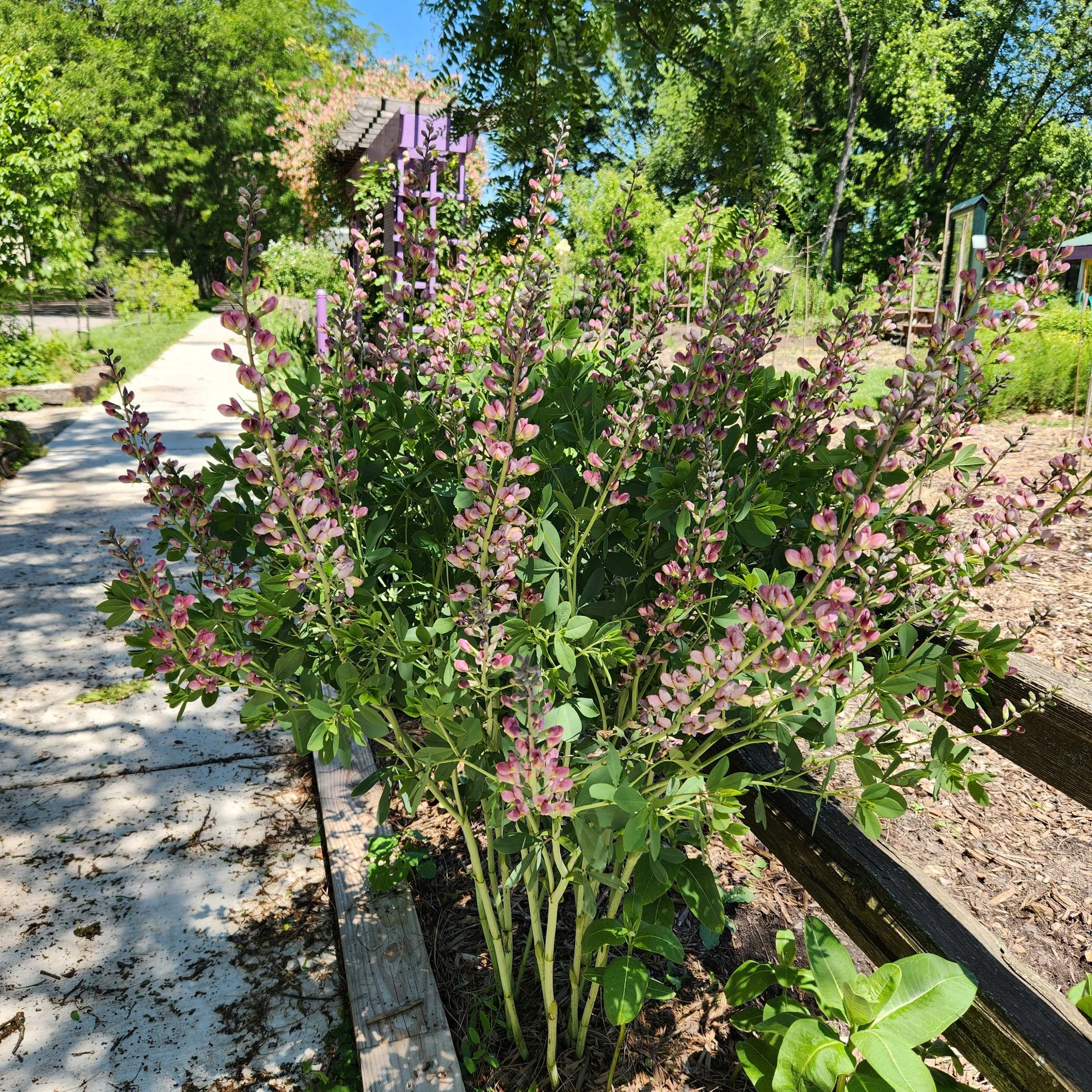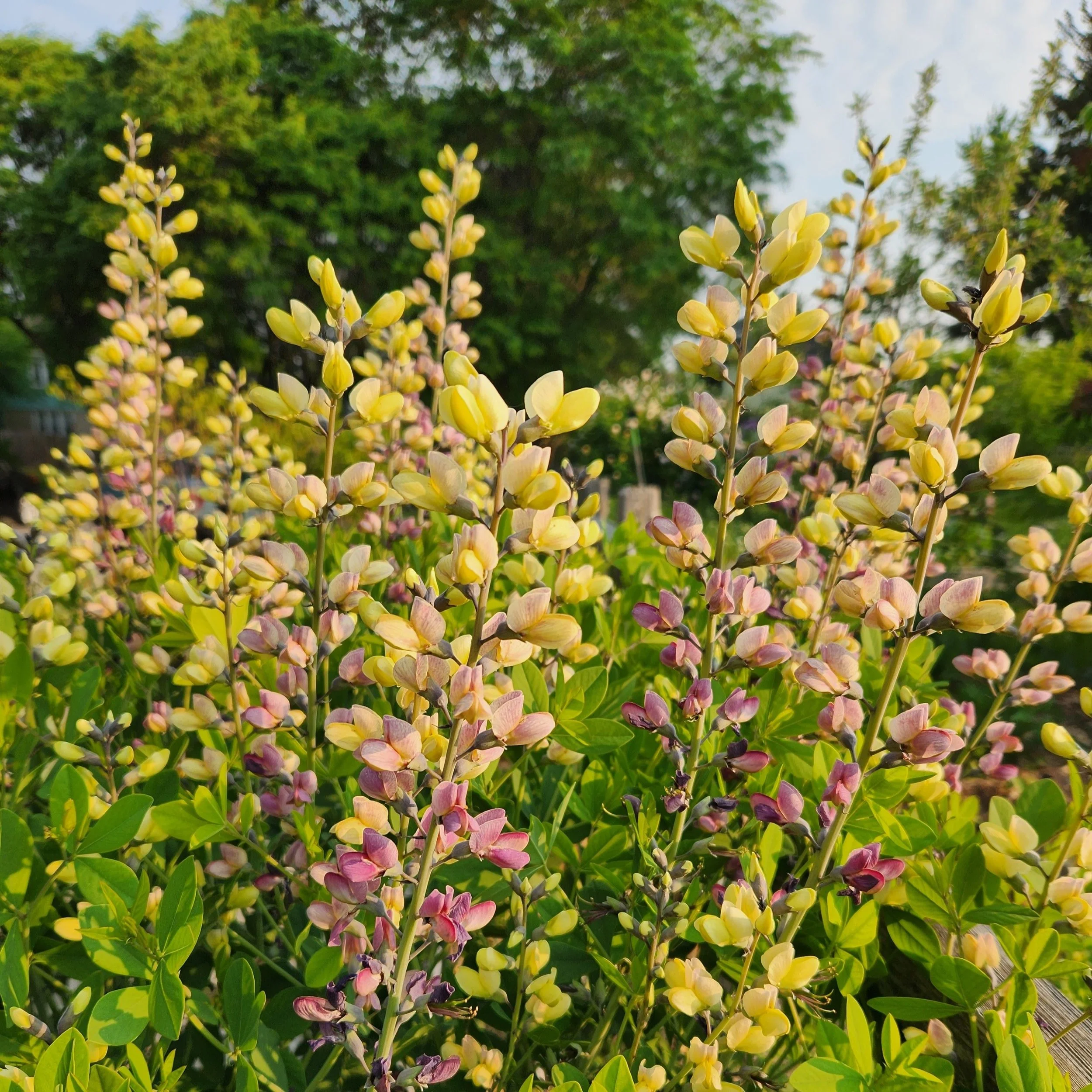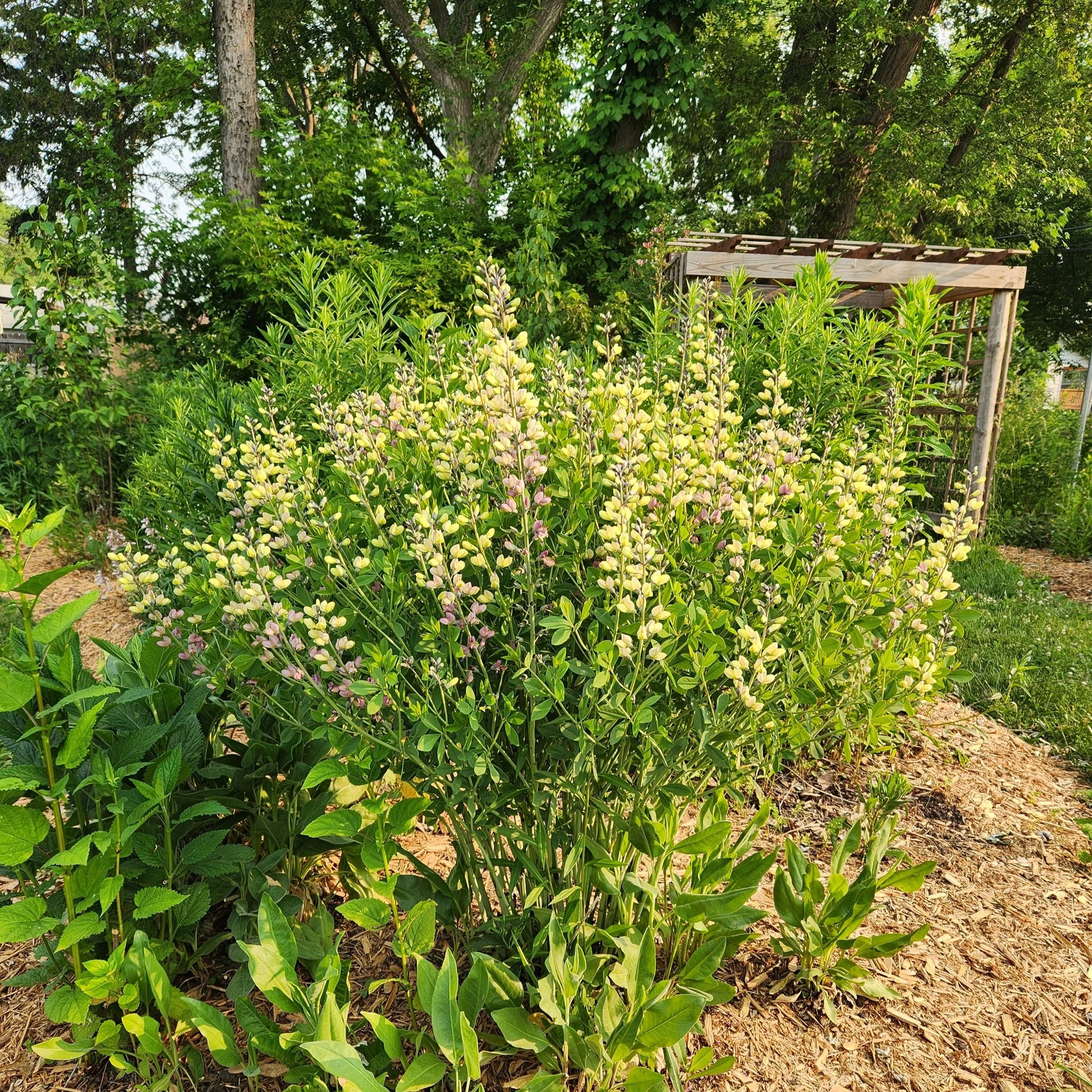 Image 1 of 8
Image 1 of 8

 Image 2 of 8
Image 2 of 8

 Image 3 of 8
Image 3 of 8

 Image 4 of 8
Image 4 of 8

 Image 5 of 8
Image 5 of 8

 Image 6 of 8
Image 6 of 8

 Image 7 of 8
Image 7 of 8

 Image 8 of 8
Image 8 of 8









Baptisia, False Indigo, Mix, Quart pot
Baptisia australis, False Indigo, Quart pot - MIX
FS, Zone 4, Blooms May - June, seed pods late summer, 4’ x 3.5’, low to avg moisture, deer resistant
Keystone Species - Baptisia supports 18 species of butterfles and moths. As a member of the legume family, it enriches the soil and it’s deep tap roots provide soil stabilization. Key early pollen and nectar source for emerging Bumble Bee Queens.
Baptisia australis is the original prairie version not to be confused with some of the navitars we have sold in past seasons such as Pink Lemonade. For 2026 we are offering 2nd year divisions from plants we have propagated. This could be the original prairie version, Pink Lemonade or Pink Truffles. See photos.
Baptisias are very easy to grow natives that once established will grace your garden all season long with beauty. They bloom early in the season and are mainly visited by bees and in particular bumble bees. The florets grow on stalks or racemes and open from bottom up. The florets are five petaled and the stamens and anthers are hidden from view. Only a strong bee like the bumble bee can pry their way into the nectar and in the process get covered in pollen. The female Bumble bees are just emerging from their solitary nests in eary spring and desperatly need this pollen to feed the first of their offspring. Other smaller bees find ways to drill into the nectar. Nectar robbers! We’re looking at you Carpenter Bees!
Like many natives, Baptisia develops an extremely deep taproot. This allows it to survive in times of drought. The plant takes approximately 3 years to get to a mature size. Once it has reached that status the foliage can be cut for arrangements. Make sure you locate this plant in its forever home. Due to the very deep tap root, they are not easily transplanted.
is a critical host plant for the caterpillars of several butterfly and moth species.
Wild Indigo Duskywing, Orange Sulphur and Clouded Sulphur Butterflies, and many Moth species.
We originally sourced these plants as bare roots from Walters Gardens in Zeeland Michigan. They are renowned growers and breeders of Baptisia.
Baptisia australis, False Indigo, Quart pot - MIX
FS, Zone 4, Blooms May - June, seed pods late summer, 4’ x 3.5’, low to avg moisture, deer resistant
Keystone Species - Baptisia supports 18 species of butterfles and moths. As a member of the legume family, it enriches the soil and it’s deep tap roots provide soil stabilization. Key early pollen and nectar source for emerging Bumble Bee Queens.
Baptisia australis is the original prairie version not to be confused with some of the navitars we have sold in past seasons such as Pink Lemonade. For 2026 we are offering 2nd year divisions from plants we have propagated. This could be the original prairie version, Pink Lemonade or Pink Truffles. See photos.
Baptisias are very easy to grow natives that once established will grace your garden all season long with beauty. They bloom early in the season and are mainly visited by bees and in particular bumble bees. The florets grow on stalks or racemes and open from bottom up. The florets are five petaled and the stamens and anthers are hidden from view. Only a strong bee like the bumble bee can pry their way into the nectar and in the process get covered in pollen. The female Bumble bees are just emerging from their solitary nests in eary spring and desperatly need this pollen to feed the first of their offspring. Other smaller bees find ways to drill into the nectar. Nectar robbers! We’re looking at you Carpenter Bees!
Like many natives, Baptisia develops an extremely deep taproot. This allows it to survive in times of drought. The plant takes approximately 3 years to get to a mature size. Once it has reached that status the foliage can be cut for arrangements. Make sure you locate this plant in its forever home. Due to the very deep tap root, they are not easily transplanted.
is a critical host plant for the caterpillars of several butterfly and moth species.
Wild Indigo Duskywing, Orange Sulphur and Clouded Sulphur Butterflies, and many Moth species.
We originally sourced these plants as bare roots from Walters Gardens in Zeeland Michigan. They are renowned growers and breeders of Baptisia.